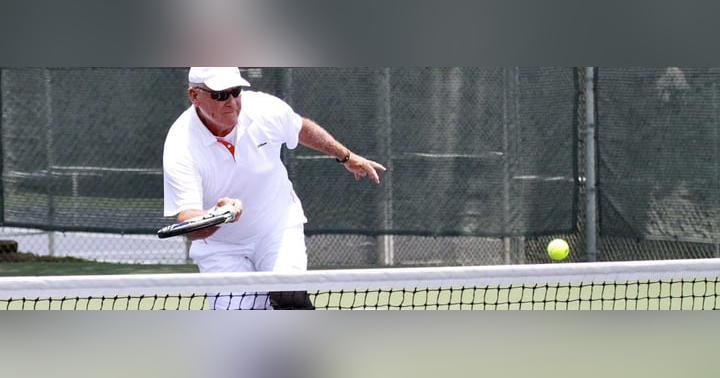Coaching your own children - What tennis parents need to know

Every parent wants to see their child prosper in all aspects of their life. It’s natural instinct. As a parent, the pride you feel watching your child succeed is unbeatable. When it comes to sports, including racquet sports, there is a fine line between being a supportive parent or being a controlling pushy parent. You may think you’re doing everything possible to help your child grow but these actions could actually be damaging to their progress and ruining the enjoyment of the sport.
So, how can you draw the line between coach and parent to help make sure your children get the support and help they need? Sometimes you just need to take a step back and let the coaches do their job while you support them in other ways. Here are some of our top tips for the tennis parents out there.
Work collaboratively with coaches
It’s a coach’s job to help your kids progress to be the best they can, therefore, as a parent, you need to have 100% trust in their coaches. It’s all too common to see coaches try to give instructions from one side of the court while a parent is shouting something completely different from the other side. While it’s likely that parents are only trying to help their child progress, hearing two completely different things from both sides of the court is extremely confusing and will impact the player’s concentration. The best way to help your child progress when on the sideline is to reinforce what their coach is saying and encourage them to take that information on board.
Avoid drawing comparisons
We’re all human, everyone is different and will progress in different ways. It’s no different when it comes to our children. Every kid has a different evolution process so comparing them to their peers will only detriment their progress in the future. Worrying that your child isn’t progressing at the same rate as other or isn’t winning as many matches and tournaments will only transfer that worry and frustration onto them which in turn will negatively impact their enjoyment and performance.
In the same vein try not to get complacent if your son or daughter is the best in their age group as it’s likely the other will soon catch up. Even the pros don’t stop striving for improvement when they reach the top. Spend time teaching your children that it’s more important to focus on their own progression rather than constantly comparing them to their friends and peers.
Don’t add unnecessary pressure
Learning how to handle pressure can be an extremely difficult task. There are lots of occasions where the best athletes in the world will let the pressure get to them and crumble in tough situations. Far too often you will see parents on the sidelines piling on the pressure before and during a match, expecting their child to win and letting them know that.
More than likely this will come from the parents who have never competed before and don’t understand the pressure that is already on their child. It’s far more beneficial to reflect on a match and focus on the positives to help boost their confidence before looking at how to work on any weaknesses in their game. This should be the case with players of all ages but it is especially important in children as they are still learning the game and their confidence might be lower.
Set achievable goals
Following on from the idea of building confidence, setting achievable and realistic short and long term goals is the best way to help a child improve both their ability and confidence. Having a clear goal in mind gives a player something to aim for while training and the boost they will get from achieving their goal is unbeatable.
Setting short term goals provide great motivation as the end is in sight and they can track their progress towards achieving their goals. Setting a ten-year-old the goal of turning professional is completely unrealistic. The end is so far away and there are so many hurdles that they will have to overcome along the way meaning motivation will be lost and it’s likely they will lose interest in the sport. Setting goals around improving or learning new skills in the coming weeks or months means they are able to work on these during training and will be able to see the moment they have achieved their goal.
Enjoyment and happiness are above everything
At the end of the day remember why your child started playing tennis in the first place. When you first start a sport it’s because it’s fun and enjoyable, the competitive nature comes as you progress and develop your skills. Happiness and enjoyment should always be the top priority, if your child isn’t having fun they won’t want to keep playing and if they do keep playing they will stop progressing.
It’s far more important to have a happy child than a tennis champion, but in an ideal world why not both? It’s a coach’s job to turn them into a top athlete and the parent’s job to make sure they are happy, not only in racquet sports but all aspects of life. Enjoyment and happiness are crucial, not only for the wellbeing of your child but also in order to help them improve their tennis skills. If they aren’t enjoying tennis they simply won’t put the effort in.
All parents want is what’s best for their children, however, it’s important to take a step back and consider whether their actions might actually be detrimental. We get it, your kids will likely need some encouragement but make sure there is a balance between pushing and letting them do what they enjoy. Let the coaches do the coaching (it’s what they do best) and focus on being a parent.











